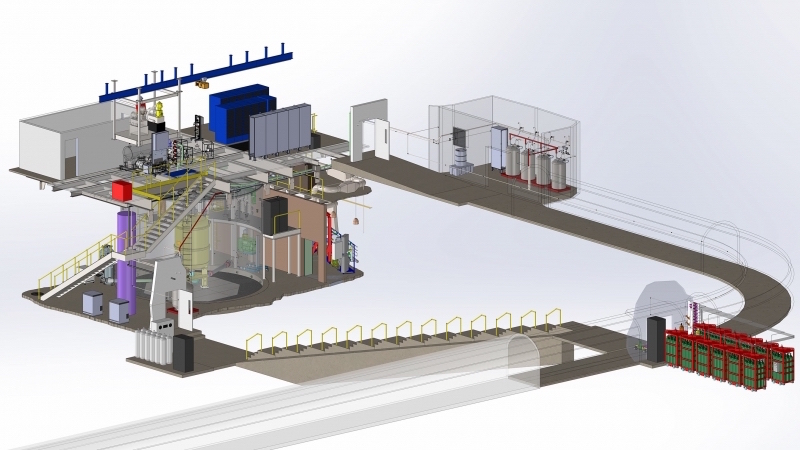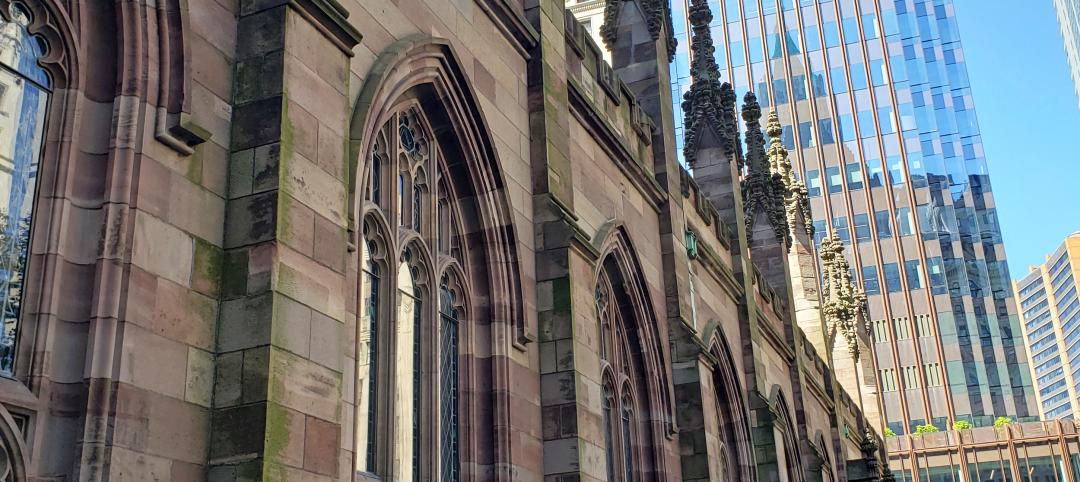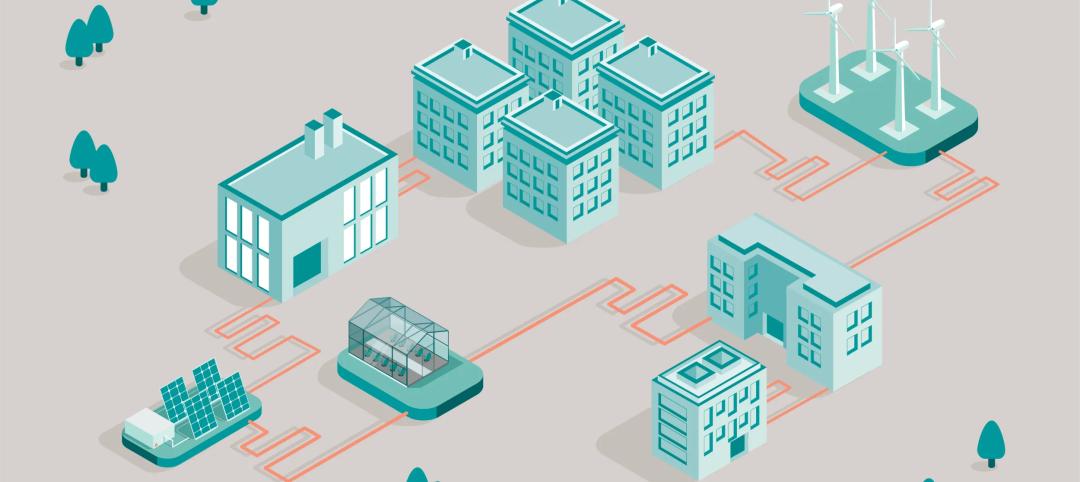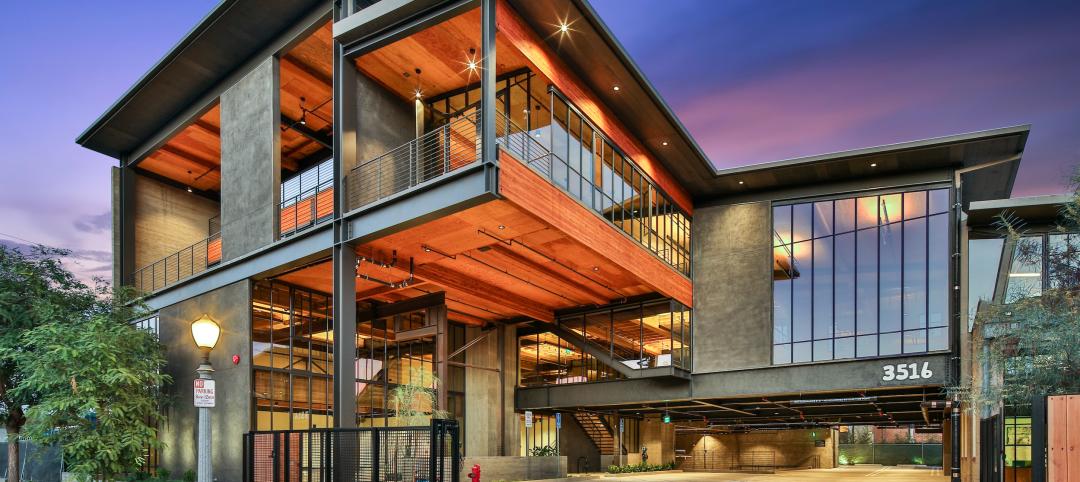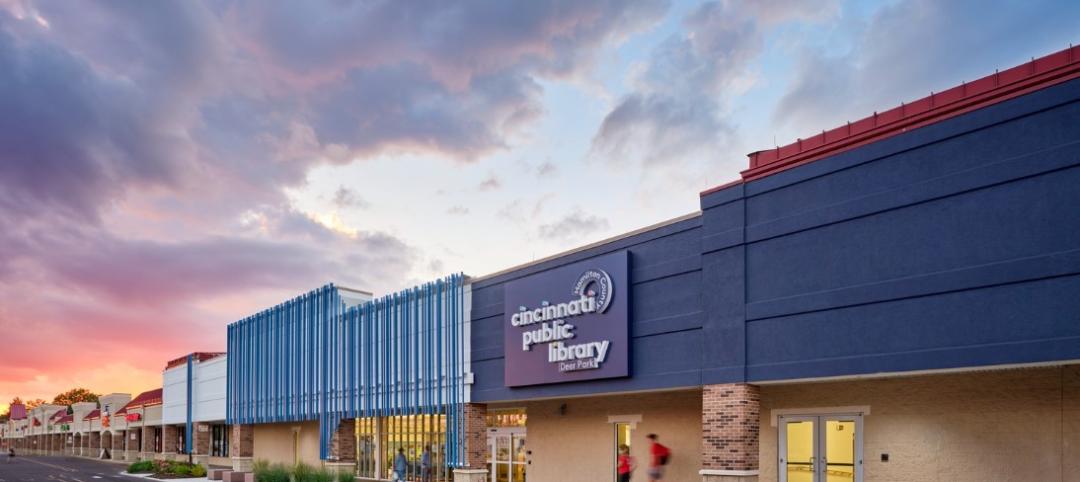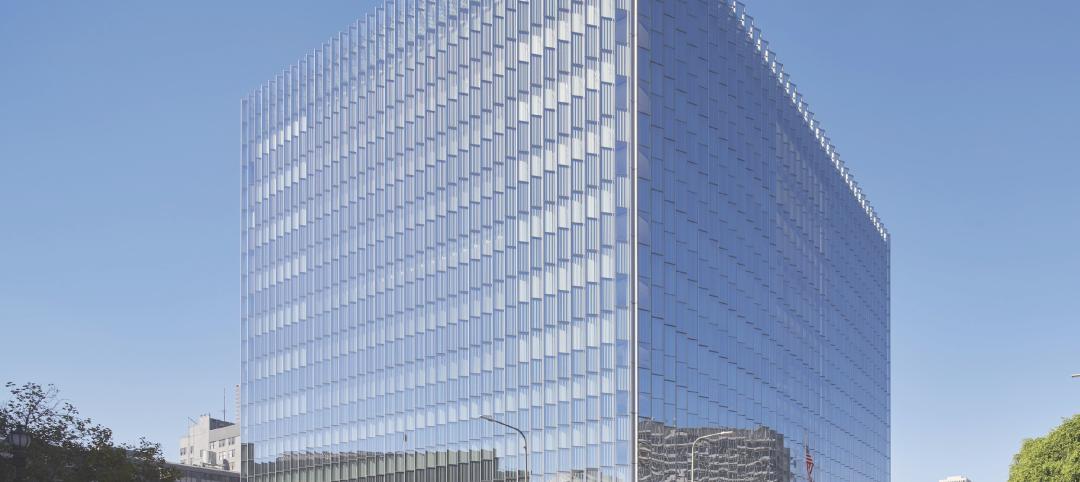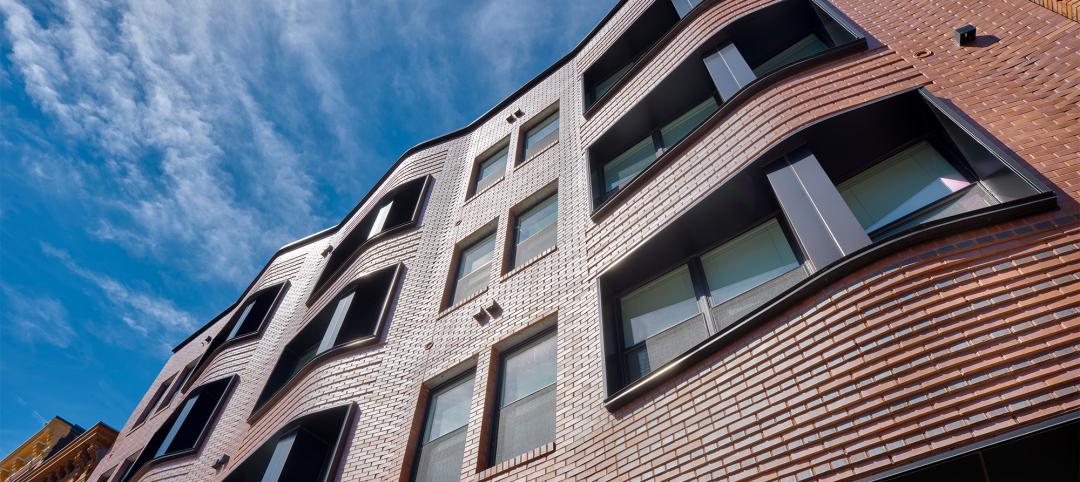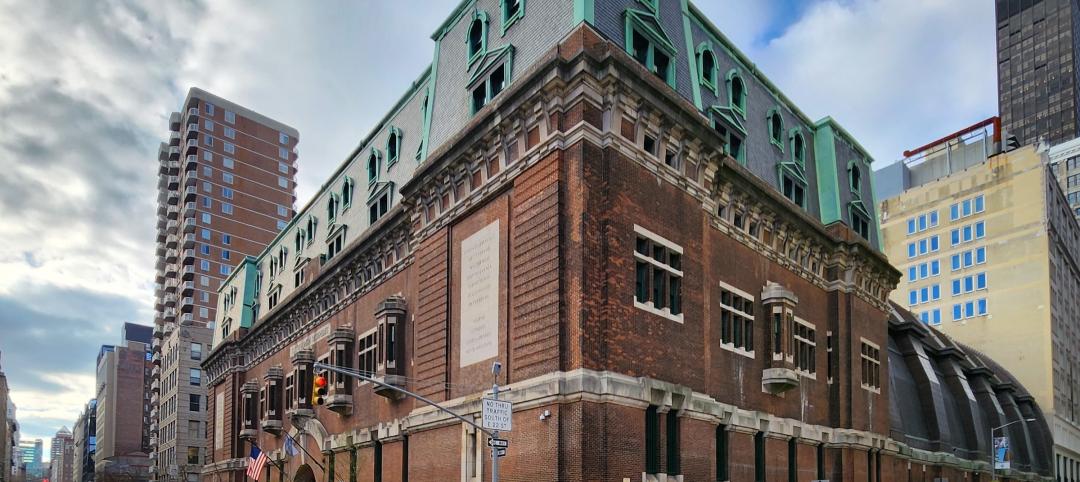In a former gold mine in Lead, S.D., an underground research facility is being renovated for a major experiment that, when completed in two years, would be the most sensitive dark-matter detector ever produced, capable of detecting collisions between galactic dark matter and regular matter within an unprecedented range.
Dark matter accounts for 85% of all matter. It affects the motion of galaxies, bends light, and influences the very structure of the universe. The LUX-ZEPLIN (LZ) experiment (which stands for Large Underground Xenon and ZonEd Proportional scintillation in Liquid Noble gases) will be conducted in the Davis Cavern at Sanford Underground Research Facility, or SURF, which is shielded from cosmic background radiation by nearly a mile of rock.
Architects and engineers with LEO A DALY designed the renovations to Davis Cavern at the same time as LZ’s team of 220 scientists finalized the design of the experimental apparatus itself. LZ holds 10 tons of liquid xenon, making it about 30 times larger and 100 times more sensitive than a previous LUX experiment that SURF conducted between 2012 and 2016.
“The level of coordination and flexibility required, in a tight underground space, with parameters constantly evolving, and with extraordinary safety and cleanliness considerations, made this one of the most challenging and exhilarating projects we’ve ever done,” said Steven Andersen, a senior architect and project manager with LEO A DALY in Minneapolis.
LZ was selected by the U.S. Department of Energy (DOE) and the U.S. National Science Foundation as one of the three G2 (for Generation 2) dark matter experiments. In February 2017, the project passed a DOE review and approval stage known as “Critical Decision 3,” which accepted the final design and formally launched construction.
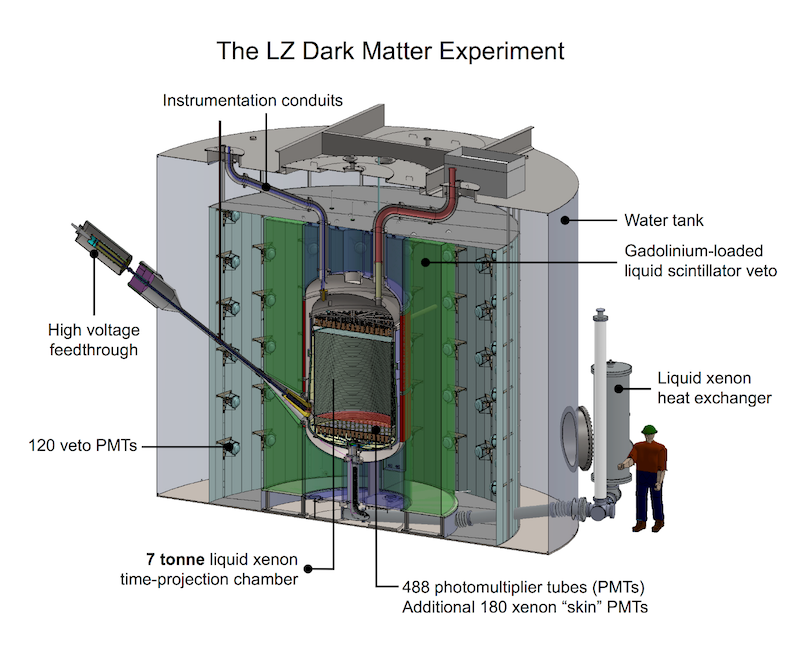
When this renovation and new installations are completed in 2020, the LZ experiment will be 30 times larger and 100 times more sensitive than a previous dark-matter experiment that took place between 2012-2016. Image: SURF, courtesy of LEO A DALY
The experiment—which will take place on the Davis Campus that’s 4,850 feet below ground level—is a collaboration among scientists and engineers from 37 institutions in the U.S., United Kingdom, Portugal, Russia, and Korea. It is one of the few second-generation projects investigating the theory that dark matter is made up of weakly interactive massive particles (WIMPS). Direct detection of WIMPS would be a major discovery in this field.
John Keefner, underground operations engineer with SURF, said in a prepared statement that planning for this experiment started even before LUX was built. “We’re finally at the point where we can begin to refit the cavern and existing infrastructure to all for the installation of LZ.”
The renovation includes removing an existing cleanroom, tearing down a wall between two former low-background counting rooms, installing a new hoist system, building a work deck and modifying the water tank itself to accommodate the larger cryostat. A wall in the lower level of Davis Cavern will be removed to make way for four compressors that will be used for emergency xenon storage recovery. Other renovations include a radon reduction room and a xenon storage room.
This renovation work is being handled by Ainsworth Benning Construction, and will include updates to the cavern’s plumbing, electrical and ventilations systems, after which the scientists can begin installing the experiment itself. This work is complicated by the fact that on the other side of the cavern is the entrance to the Majorana Demonstrator Project, another sensitive experiment that requires an extremely clean environment.
Related Stories
Sponsored | Building Enclosure Systems | May 16, 2023
4 steps to a better building enclosure
Dividing the outside environment from the interior, the building enclosure is one of the most important parts of the structure. The enclosure not only defines the building’s aesthetic, but also protects occupants from the elements and facilitates a comfortable, controlled climate. With dozens of components comprising the exterior assemblies, from foundation to cladding to roof, figuring out which concerns to address first can be daunting.
Multifamily Housing | May 16, 2023
Legislators aim to make office-to-housing conversions easier
Lawmakers around the country are looking for ways to spur conversions of office space to residential use.cSuch projects come with challenges such as inadequate plumbing, not enough exterior-facing windows, and footprints that don’t easily lend themselves to residential use. These conditions raise the cost for developers.
Sustainability | May 11, 2023
Let's build toward a circular economy
Eric Corey Freed, Director of Sustainability, CannonDesign, discusses the values of well-designed, regenerative buildings.
Office Buildings | May 4, 2023
In Southern California, a former industrial zone continues to revitalize with an award-winning office property
In Culver City, Calif., Del Amo Construction, a construction company based in Southern California, has completed the adaptive reuse of 3516 Schaefer St, a new office property. 3516 Schaefer is located in Culver City’s redeveloped Hayden Tract neighborhood, a former industrial zone that has become a technology and corporate hub.
Higher Education | Apr 17, 2023
Rider University opens a 'Zen Den' for restoring students' mental well-being
Rider University partnered with Spiezle Architectural Group to create a relaxation room for students, dubbed "The Zen Den."
Libraries | Mar 26, 2023
An abandoned T.J. Maxx is transformed into a new public library in Cincinnati
What was once an abandoned T.J. Maxx store in a shopping center is now a vibrant, inviting public library. The Cincinnati & Hamilton County Public Library (CHPL) has transformed the ghost store into the new Deer Park Library, designed by GBBN.
Government Buildings | Mar 24, 2023
19 federal buildings named GSA Design Awards winners
After a six-year hiatus, the U.S. General Services Administration late last year resumed its esteemed GSA Design Awards program. In all, 19 federal building projects nationwide were honored with 2022 GSA Design Awards, eight with Honor Awards and 11 with Citations.
Affordable Housing | Mar 8, 2023
7 affordable housing developments built near historic districts, community ties
While some new multifamily developments strive for modernity, others choose to retain historic aesthetics.
Reconstruction & Renovation | Mar 8, 2023
Hoffmann Architects + Engineers receives Lucy G. Moses Preservation Award from New York Landmarks Conservancy
Hoffmann Architects + Engineers, a design firm specializing in the rehabilitation of building exteriors, announces that the historic facade rehabilitation and window replacement at the 69th Regiment Armory has been selected for the Lucy G. Moses Preservation Award, the New York Landmarks Conservancy’s prestigious recognition for outstanding preservation efforts.
Adaptive Reuse | Mar 5, 2023
Pittsburgh offers funds for office-to-residential conversions
The City of Pittsburgh’s redevelopment agency is accepting applications for funding from developers on projects to convert office buildings into affordable housing. The city’s goals are to improve downtown vitality, make better use of underutilized and vacant commercial office space, and alleviate a housing shortage.


